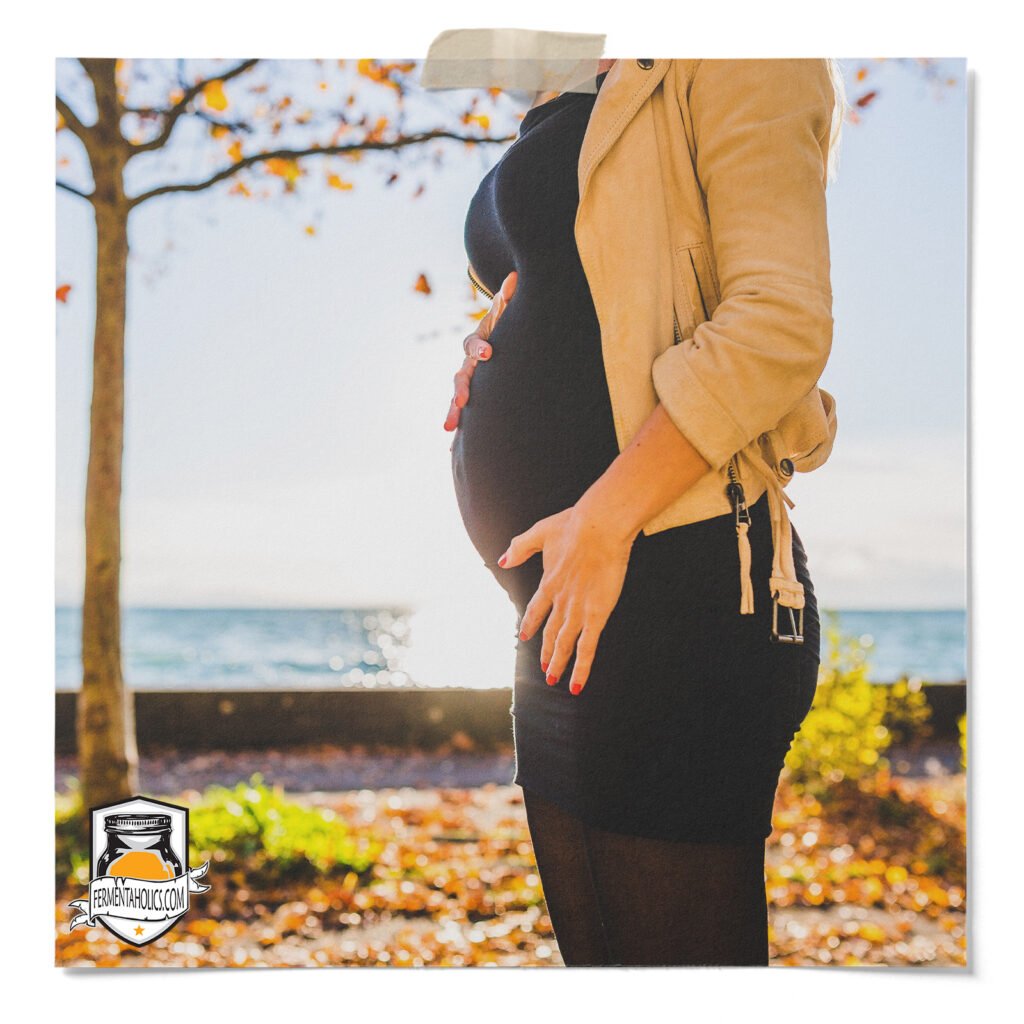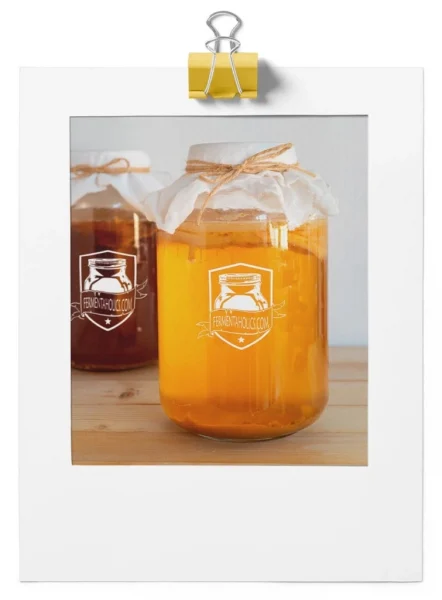
We are often asked if kombucha is safe to drink when you’re pregnant. Unfortunately, this isn’t a simple yes or no answer; it’s a loaded question.
Let’s first talk about what kombucha is. Kombucha is a fermented beverage, and just like any fermented beverage, it contains yeast along with certain bacterias and sugar which feeds these organisms. This process creates thriving live colonies of beneficial bacteria and yeast. Upon completion, the kombucha fermentation process will leave your tea slightly effervescent and tart, which is unique to kombucha.
It depends, we know many that do, and many that choose to refrain. Depending on the individual, the three main areas of concern are potential alcohol content, caffeine content, and kombucha being unpasteurized. Another thing to keep in mind is that kombucha is almost always flavored. When brewing kombucha, the flavors are created during the secondary kombucha fermentation, and the options are limitless. You can use anything from fresh fruit, herbs, spices, fruit juices, botanicals, sugars to artificial sweeteners – to name a few. So when buying or making kombucha, these additional ingredients may also need to be taken into consideration. So let’s take a look at each potential area of concern – unpasteurized, alcohol, and caffeine content.
A proper kombucha ferment is acidic. The kombucha brew is usually started at a pH of less than 4.2, and the finished product pH will fall between 2.5 and 3.5. This acidic environment prevents undesirable organisms from reproducing. While brewing at the proper pH is generally all that is required to keep your brew safe, it does result in an unpasteurized kombucha, which many doctors will advise pregnant patients to avoid.
Related Post: The Proper pH When Brewing Kombucha

The alcohol content of kombucha is another area of concern for the expected. As with all fermentation, a by-product of the kombucha fermentation process is alcohol. So how much alcohol does kombucha have? It varies; commercial kombucha bought in the store in the U.S. legally has to be less than .5% ABV, similar to a nonalcoholic beer. This threshold is hotly debated, as half of a percent is very low. Many want this raised to consider anything under 1% nonalcoholic. While usually on the lower end, homebrewed kombucha ranges from 0.25% to 1% ABV. In some homebrew cases, this can be higher, but to get to this, it is a result of an aggressive, high sugar secondary fermentation. While 0.5% ABV generally is considered nonalcoholic and usually safe for pregnant women to consume. Most doctors will still advise that their pregnant patients try and refrain from all alcohol while pregnant to be safe. These safety precautions are in place as it’s unknown whether this small amount of alcohol could have an impact on a developing fetus.
Related Post: Alcohol In Kombucha: What You Need To Know
Since kombucha is made from tea, it does contain caffeine. How much caffeine largely depends on the type of tea used, harvesting technique, and the teas brew time. Store-bought kombucha can range from as little as 7 milligrams to as much as 80+ milligrams of caffeine. To put this in perspective, your typical cup of coffee contains about 100 milligrams of caffeine per cup with decaf containing about 9.4 milligrams. Yes, decaf coffee does have caffeine. The exact caffeine content for store-bought kombucha can usually be found on the product label or the website of the product. For kombucha made at home, the caffeine content can be estimated by the type of tea used.
For example, a typical eight-ounce serving of black tea before fermentation may have 42 milligrams of caffeine. During the kombucha primary fermentation process, the kombucha culture or SCOBY reduces the caffeine content as it ferments. So while your tea may have 42 milligrams of caffeine when you start your brew, the caffeine content after fermentation will be reduced. Visit our kombucha caffeine levels post to dive a little deeper into this. So if caffeine is a concern for both you and your doctor, establishing a limit will help you determine how much kombucha you should drink.
Drinking kombucha while pregnant may be perfectly safe, there are a few things to consider. At the end of the day, this is your pregnancy, and ultimately, any concerns you have should be discussed with your doctor. If you choose to refrain until after delivery, kombucha will be waiting. In the meantime, congratulations on the new addition!
